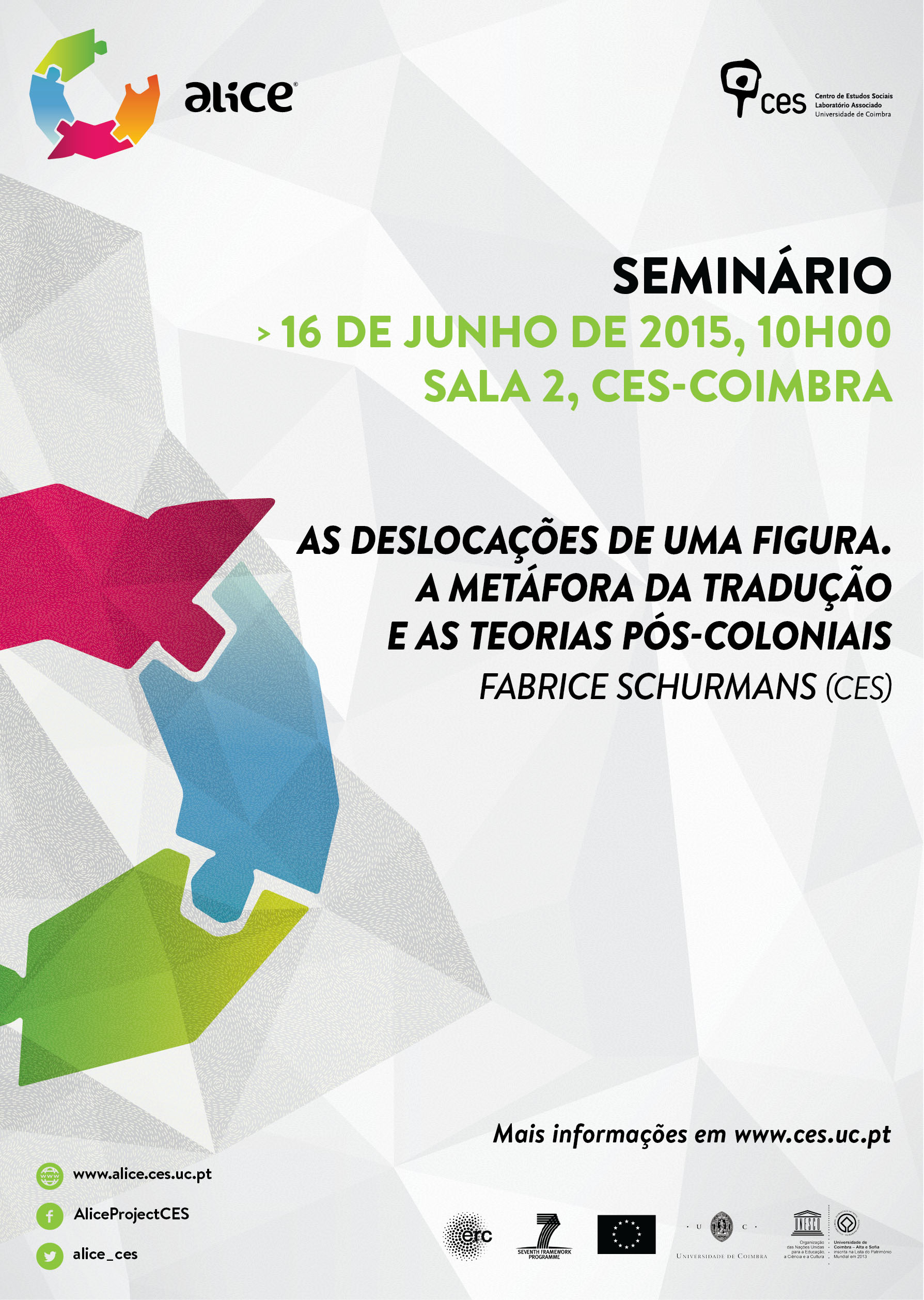Seminar
The movement of a figure of speech. The metaphor of translation and postcolonial theories
Fabrice Schurmans (CES)
June 16, 2015, 10h00
Room 2, CES-Coimbra
Abstract
Postcolonial studies often turn to the translation metaphor both in the approach to social phenomena as well regarding the interpretation of literary texts. This seminar aims to explore the meaning of the metaphor in this field. Translation theories will contribute to the comprehension of what is sustained and what is lost in terms of the original semantic domain. My intention is, firstly, to examine what the metaphor of translation might signify, based on the work of some theoreticians. In particular, I will compare Antoine Berman’s and Boaventura de Sousa Santos’ approach to translation. The former, multiplied both translation experiences as well as reflections pertaining to them and associated the use of the metaphor not only to the difficulty in defining the concept but also to the ambiguous reputation associated with the practice of translation. The latter has resorted to the translation metaphor as a vital tool for emancipation struggles, albeit reluctant in acknowledging the theory of linguistic translation “since, traditionally, it has been biased in the sense that it has attended to languages and interests of hegemonic cultural diffusion”. However, I shall demonstrate how the theory of linguistic translation, notably Berman’s, intersects and interacts with core issues of the thought of Boaventura de Sousa Santos..
Bio note
Fabrice Schurmans holds a PhD in Post-Colonialisms (Centre for Social Studies, University of Coimbra) a master's degree in Modern and Contemporary Romance Literatures (University of Porto) and two bachelor degrees - Romance Philology and Arts and Communication Sciences (University of Liège). Among his most recent published works are the books Michel de Ghelderode. Un tragique de l’identité (2011) and O Trágico do Estado Pós-colonial. Pius Ngandu Nkashama, Sony Labou Tansi, Pepetela (2014),and the articles: «A representação do migrante clandestino no cinema contemporâneo: efeitos e cenas de fronteira» [Representations of the clandestine migrant in contemporary cinema: effects and border scenes] (2014); «O valor utópico da rutura em A Revolta da Casa dos Ídolos (Pepetela)» [The utopian value of rupture in A Revolta da Casa dos Ídolos (Pepetela)] (2014) and «La Tragédie du Roi Christophe (Aimé Césaire)» [The Tragedy of King Christophe] (2013); «Les déplacements d'une figure. La métaphore de la traduction et les Théories postcoloniales» [The movement of a figure of speech. The metaphor of translation and postcolonial theories] (2012); «Relire Shakespeare, Reprendre Césaire. Pour une lecture d’Une tempête à partir du Sud» [Re-reading Shakespeare, Resuming Césaire. Interpreting The Tempest from the South] (2012); «O genocídio do Ruanda no cinema : ausência, representação, manipulação» [The Rwandan genocide in cinema: absence, representations, manipulation] (2010); «De Hannah Arendt a Nicolas Sarkozy: leitura pós-colonial do discurso africanista» [From Hannah Arendt to Nicolas Sarkozy: for a postcolonial reading of Africanist discourse] (2009).
Activity within the Humanities, Migration and Peace Studies Research Group (NHUMEP) and the project ALICE – Strange Mirrors, Unsuspected Lessons: Leading Europe to a new way of sharing the world experiences


